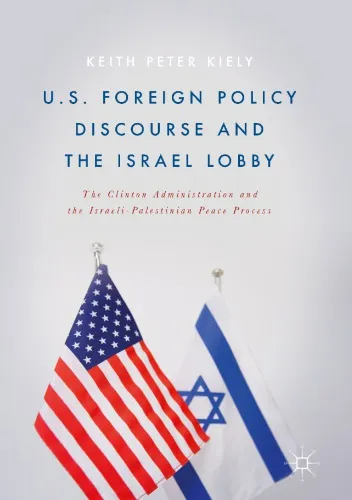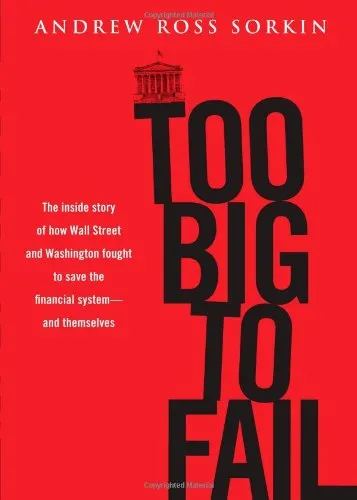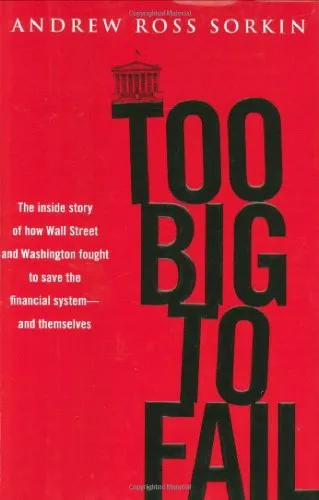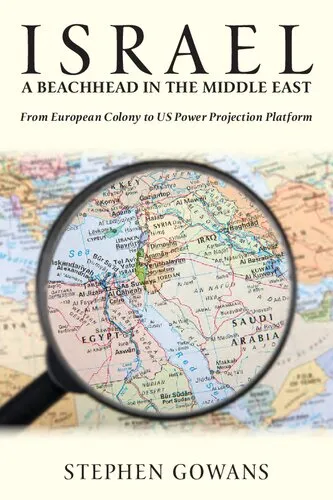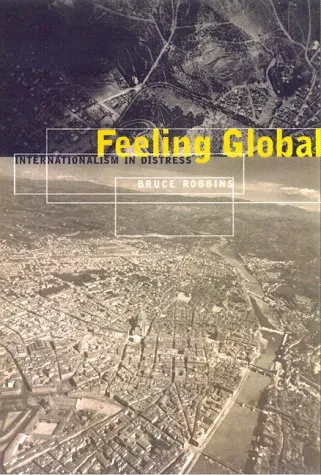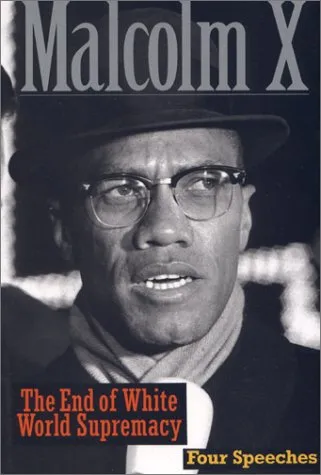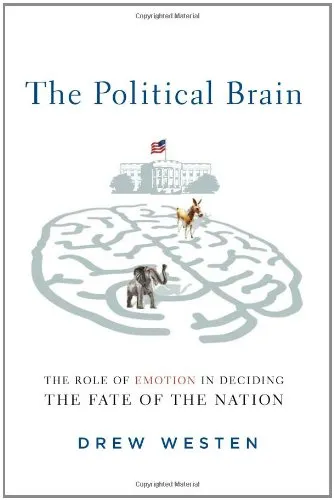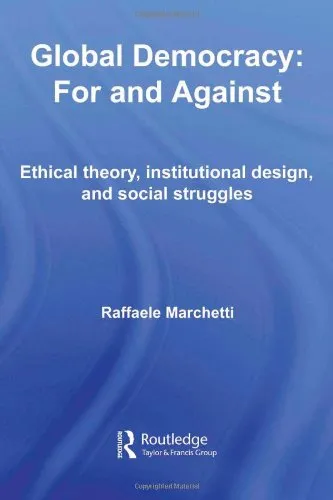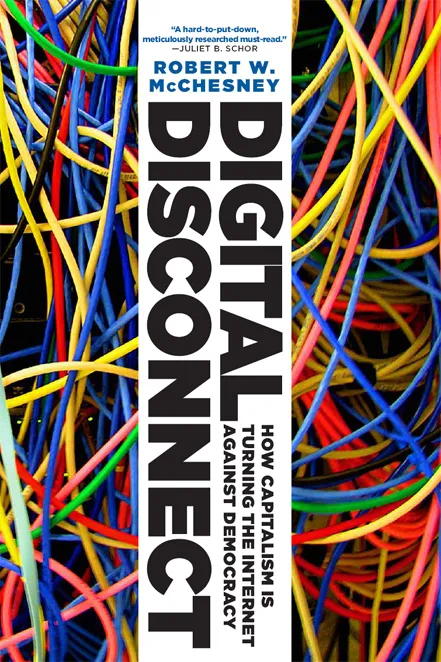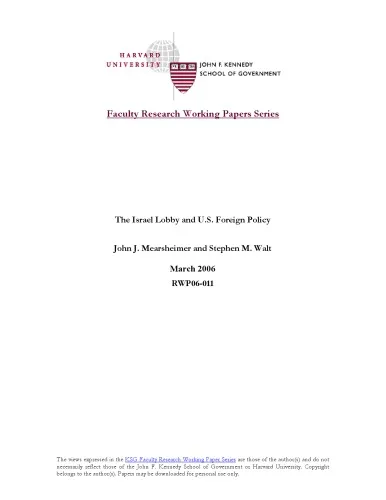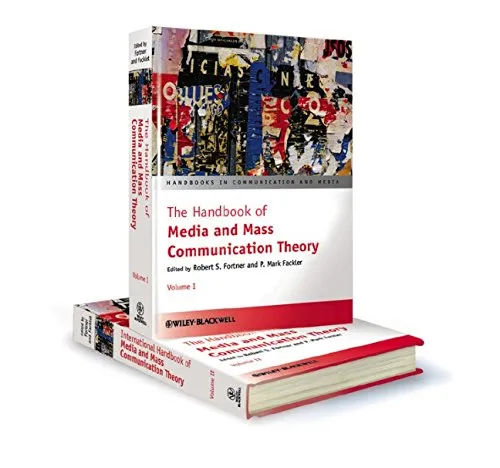U.S. Foreign Policy Discourse and the Israel Lobby : The Clinton Administration and the Israeli-Palestinian Peace Process
4.0
Reviews from our users

You Can Ask your questions from this book's AI after Login
Each download or ask from book AI costs 2 points. To earn more free points, please visit the Points Guide Page and complete some valuable actions.Related Refrences:
Introduction
"U.S. Foreign Policy Discourse and the Israel Lobby: The Clinton Administration and the Israeli-Palestinian Peace Process" delves into one of the most contentious and politically charged topics in U.S. foreign policy. Written by Keith Peter Kiely, the book critically examines the dynamics of U.S. policy-making during Bill Clinton's presidency, focusing on the influence of the Israel Lobby and the broader discourse shaping the Israeli-Palestinian peace process. By exploring the intersection between domestic politics, international diplomacy, and special interests, this work provides invaluable insight into a pivotal period in Middle Eastern politics.
This book not only evaluates the effectiveness of the Clinton Administration’s approach but also investigates the impact of the Israel Lobby in shaping American foreign policy agendas, rhetoric, and actions. Through carefully documented research grounded in political theory, international relations, and historical analysis, readers gain new perspectives on how narratives influence policymaking and how domestic and international factors intersect in the realm of diplomacy.
Detailed Summary of the Book
The book begins with an exploration of the U.S. domestic political environment of the 1990s, identifying the key players and stakeholders involved in shaping foreign policy on the Israeli-Palestinian conflict. Central to the analysis is the discourse wielded by the U.S. government under the Clinton Administration, which was often guided by longstanding narratives of unwavering support for Israel. Kiely carefully deconstructs these narratives, contextualizing how they emerged and evolved over time.
Moving forward, the author examines the structural and ideological configuration of the Israel Lobby, including organizations, interest groups, and influential individuals. These actors played a significant role in directing U.S. foreign policy initiatives and framing debates on Middle Eastern affairs. In addition, the book critically analyzes the Oslo Accords and other peace initiatives, assessing the degree to which the Clinton Administration's policies were influenced by domestic factors versus regional realities on the ground.
Kiely's work is particularly attentive to discourse analysis, offering a nuanced perspective on how language and rhetorical constructs served as instruments of policy formulation. Drawing from speeches, official documents, and media reports, the author investigates the narratives propagated by policymakers and their larger implications for U.S.-led peace efforts.
Unlike traditional critiques, which often focus solely on geopolitical considerations, this book emphasizes the interplay of discourse, ideology, and influence. Through this, readers gain a holistic understanding of the complex forces at work during this critical time frame.
Key Takeaways
- The influence of the Israel Lobby on U.S. foreign policy is multifaceted, encompassing political, economic, and cultural dimensions.
- Discourse and narratives play an essential role in shaping both domestic perceptions and international policy decisions.
- The Clinton Administration’s approach to the Israeli-Palestinian conflict reflected broader systemic challenges in U.S. diplomacy, including balancing special interests with global responsibilities.
- While peace initiatives like the Oslo Accords showed promise, their outcomes underscored the limitations of U.S. mediation efforts when heavily influenced by domestic lobbies.
- The book encourages readers to critically evaluate the intersection of power, politics, and ideology in shaping foreign relations.
Famous Quotes from the Book
"Discourse is not merely language; it creates the very structures of power upon which policies are enacted."
"The strength of the Israel Lobby lies not solely in its advocacy but in its ability to embed its narratives deeply into the fabric of U.S. political identity."
"The Clinton Administration’s paradox was attempting to be a neutral mediator while simultaneously adopting language and policies favoring one side."
Why This Book Matters
This book provides crucial insights into one of the most enduring conflicts in modern history and the role of U.S. foreign policy in managing (and at times exacerbating) it. For students of political science, international relations, and history, 'U.S. Foreign Policy Discourse and the Israel Lobby' offers a fresh and critical perspective that challenges conventional wisdom. By emphasizing the importance of discourse, the book highlights how deeply ingrained narratives shape perceptions and decisions at the highest levels of government.
Additionally, it provides valuable lessons for policymakers, advocates, and citizens on the complexities of balancing domestic interests with international responsibilities. Its enduring relevance lies in how it uncovers the intricate relationship between power, influence, and rhetoric—a dynamic as significant today as it was during the Clinton era.
Ultimately, Keith Peter Kiely’s work encourages readers to question the mechanisms of power and ideology, offering a thought-provoking critique of the structures that continue to underpin U.S. foreign policy.
Free Direct Download
You Can Download this book after Login
Accessing books through legal platforms and public libraries not only supports the rights of authors and publishers but also contributes to the sustainability of reading culture. Before downloading, please take a moment to consider these options.
Find this book on other platforms:
WorldCat helps you find books in libraries worldwide.
See ratings, reviews, and discussions on Goodreads.
Find and buy rare or used books on AbeBooks.
1497
بازدید4.0
امتیاز0
نظر98%
رضایتReviews:
4.0
Based on 0 users review
Questions & Answers
Ask questions about this book or help others by answering
No questions yet. Be the first to ask!
